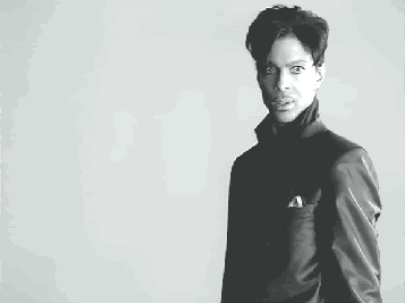Is your coaching bench fit for purpose?
In many organisations, the phrase “we have an executive coaching bench” is said with quiet pride. It signals a certain level of maturity and that leadership development is taken seriously, that talent is being invested in.
But when I look closer at some of these benches, I often find the same pattern repeating itself. A homogenous mix of coaches who share similar educational backgrounds, cultural frames, and sometimes even worldviews. And that’s where the problem lies.
Big companies tend to build coaching benches that look and sound like them. They recruit coaches who understand the system but not necessarily those who can challenge it. Diversity of thought or cultural insight often takes a back seat to “fit.” And yet what if you are there and your class, gender or ethnic history doesn’t quite allow you to fit, and your coach has no sense of how to unlock that?
And it’s not just the large companies. Medium and smaller organisations, often looking up to their larger peers for cues, fall into the same trap. They emulate the model not realising that the model itself might be part of the problem.
So if you are the decision maker building your coaching strategy for the year ahead, tell me
Does your current bench stretch your leaders or simply soothe them?
Do you know what a balanced coaching strategy looks like, one that blends challenge, empathy, and commercial understanding?
I’m often approached by senior leaders who want coaching that goes beyond competency frameworks or neat acronyms and someone who actually understands the economics of leadership.
They want to know whether I have experienced what it’s like to make tough calls that affect profit and people. Or who I have worked with in order to reach such an end goal. They are looking for a sounding board to navigate complex unit economics, balance stakeholder pressure, and negotiate outcomes under real-world constraints
This level of requests suggests that the best coaching for executives doesn’t just explore the who and how of leadership, but it also understands the why behind decisions that shape strategy, performance, and resilience.
Clients want depth, nuance and context, but too often, the decision-makers responsible for commissioning coaching default to their safe list with the same people, the same frameworks, the same outcomes. And very often, jaded senior leaders or executives will dismiss the efficacy of executive coaching because of the milquestoast experiences they have had.
I understand as an executive coach that it’s not malice, but rather it’s a habit. Conversely, habits can quietly limit growth.
Coaching and new tech
In recent years, there’s been a growing fascination with online coaching platforms and AI-powered coaching tools. Many of them promise scalability, affordability, and convenience and to some extent, they deliver. But leadership isn’t a data point, and growth doesn’t come from algorithms alone.
As an executive coach experimenting with Ai assistance myself, such tech can be handy, but as a standalone, these tools often reinforce existing biases, mirroring the same cultural and linguistic norms they were trained on. They can simulate empathy, but they rarely embody it. They can identify goals, but they struggle with the deeper human contradictions that real coaching surfaces around doubt, ego, power, and courage.
Executive coaching is not a tick-box transaction; it’s an investment. It is not a simple P&L expense to be written off. When you choose your bench, you’re effectively deciding what kind of leaders you want to shape for the future so any coaching approach should be optimising for for genuine transformation not convenience
If you are a decision maker and you’re serious about your coaching strategy, it’s worth asking, Are you curating a bench to tick a box, or to elevate performance and perspective?
The organisations getting it right take a portfolio approach to coaching. One that blends internal consistency with external diversity. They build a small core of trusted coaches aligned with company values, but intentionally rotate in specialist partners who bring fresh cultural, strategic, or sector perspectives.
They dont focus on evaluating coaches on qualifications or frameworks, but on measured outcomes such shifts in leader mindset, team performance, and decision-making confidence.
And importantly, they align coaching strategy to business rhythm, integrating it with performance reviews, succession planning, and culture initiatives, rather than treating it as a luxury add-on.
What to Look for in Your Coaching Pool
So let’s explore what to look for when reviewing your current coaching pool — or building a new one from the ground up.
A strong bench begins with representation. It should mirror the diversity of your workforce and the markets you serve, offering perspectives that stretch rather than simply affirm existing viewpoints. Coaching that only reflects one worldview limits the organisation’s imagination; coaching that draws from difference unlocks new kinds of thinking.
Next is cultural intelligence. The ability of a coach to move fluidly across conversations about race, gender, class, and culture with empathy and understanding. Senior leaders operate in increasingly global and multicultural spaces; their coaches must be equally fluent in that reality.
Then there’s business acumen. The most effective coaches don’t just speak the language of leadership development; they understand the economics beneath it. They’ve wrestled with strategy, operations, finance and the practical tensions that make leadership complex. When a coach understands how numbers, people, and politics intersect, their questions go deeper.
Equally vital is evidence of impact. Coaching should move beyond pleasant conversations and surface insights. It should deliver tangible outcomes such as shifts in confidence, clarity, decision-making, and team performance. If the only proof of value comes from a glowing testimonial, you might not be measuring what truly matters.
Great coaches are also adaptable. They don’t cling to one model or methodology. Whether it’s GROW, CLEAR, or something bespoke, the best coaches tailor their approach to context, personality, and business rhythm.
And perhaps most importantly, they bring challenge and candour. They are willing to sit in the discomfort with a senior leader, to ask the hard question no one else dares, and to call out patterns that quietly sabotage growth.
Finally, a solid coaching relationship rests on ethics and integrity. The ability to hold space with confidentiality, trust, and respect. In that space, leaders can let the guard down, think aloud, and reconnect with their purpose.
In the end, your coaching pool is not just a collection of professionals. It’s a mirror of your organisation’s values and a signal of how serious you are about developing the kind of leadership that endures.
So let’s wrap this up with some questions for consideration
When was the last time you audited your coaching pool for diversity of thought and background?
Are you selecting coaches based on comfort, cost, or actual performance outcomes?
How do your coaches help leaders navigate differences, not just deliverables?
Are your most senior people being stretched or supported?
Do you even know what good coaching looks like across different cultural lenses?
If those questions spark curiosity or discomfort, that’s a good sign. We have worked with amazing clients who have done just this, and we are happy to explore it with potential clients as well.
The most effective coaching cultures aren’t just built on reputation or qualifications, they are built on results, relevance, and resonance.
If you want to rethink what your coaching bench could look like one that reflects a wider world, challenges the status quo, and develops leaders ready for a global, multicultural reality, let us book a discovery call to explore what it looks like to think outside the box.
In the meantime keep building that bench that is inclusive and commercially robust.


